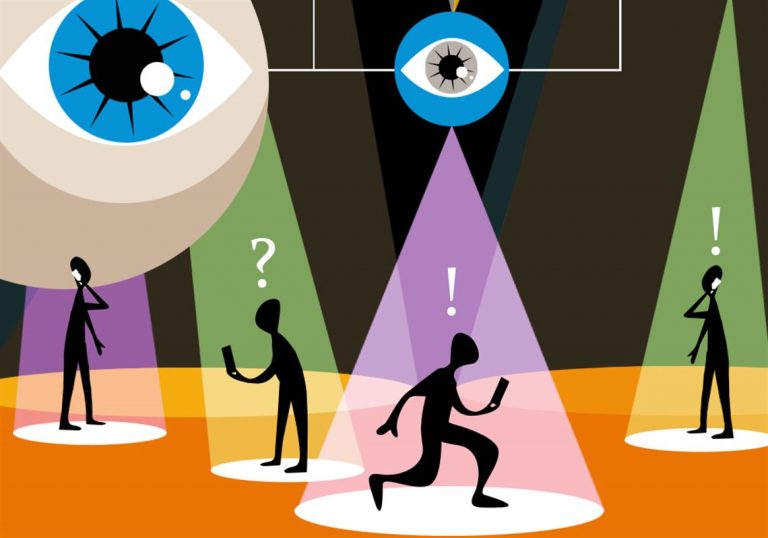‘Contact Tracing’ Apps and the Threats to Privacy
Tue 11:55 am +01:00, 2 Jun 2020
Tech companies have already launched the contact tracing apps to be used in the government’s measure to so-called manage the alleged spread of the coronavirus. This technology relies on the Bluetooth signals on smartphones, enabling the gadget to both send and receive data for tracking people who are thought to be exposed to the virus therefore, notifying health authorities. The app will also enables to “alert anyone whose smartphones had come near the infected person’s phone in the prior 14 days”, according to Google and Apple.
However, skeptics believe that this system could be tricky and might be used by governments and other agencies for other purposes. Globalresearch.ca wrote:
“Google, however, cannot be trusted to preserve and respect privacy. In September the corporation was ordered to pay $170 million fine after it knowingly and illegally harvested personal information from children on its YouTube platform. Prior to this, the Silicon Vally tech giant was caught sharing its users’ personal information without obtaining consent. In 2014, Google was fined $22.5 million for implementing a workaround that let it spy on the browsing histories of mobile clients.”
Meanwhile, just recently, 170 researchers and scientists in the UK working in information security and privacy have signed a joint letter of statement addressing to NHS for their concern over this system. They have warned that authorities “must not create a tool that could be used for the purposes of surveillance”. The letter was signed by some top professors and researchers in cybersecurity from prestigious universities of UK urging that “any digital solution for helping the fight against COVID-19 should be analysed by security and privacy specialists.” According to their statement, it might lead to illegal access to potential de-anonymised information being stored in a central database that can be used for surveillance purposes.
According to the letter:
“It is vital that, when we come out of the current crisis, we have not created a tool that enables data collection on the population, or on targeted sections of society, for surveillance…Such invasive information can include the ‘social graph’ of who someone has physically met over a period of time. With access to the social graph, a bad actor (state, private sector, or hacker) could spy on citizens’ real-world activities. We are particularly unnerved by a declaration that such a social graph is indeed aimed for by NHSX.”
Read the letter here: https://drive.google.com/file/d/1uB4LcQHMVP-oLzIIHA9SjKj1uMd3erGu/view
As a response, an NHSX spokesperson said that “all of the data analysed and stored in the fight against coronavirus will be deleted when it’s no longer required. Users of the app will remain anonymous up to the point where they volunteer their own details, and there will be no database that allows the de-anonymisation of users.”
NSHX also added that:
“We will publish the data protection agreements in due course, and we will close down the app once the threat from the pandemic has passed, with any data users have chosen to share deleted at that point and some retained for research purposes, subject to legal and ethical considerations, to better understand the virus.”
Meanwhile, concerned about the security of users, Camilla Winlo, the director of data protection and privacy at consultancy DQM GRC said:
“We are looking at technology that needs to be able to track your exact geographic location and the individuals you interact with in real time. This significantly intrudes into people’s fundamental human right to a private life that is not monitored or controlled by the state. There is always a need to balance a state’s duty to protect its citizens with its duty to protect other freedoms, such as freedom of association, freedom of speech and the right to a private life – and tools that normalise intrusion into these areas change that balance.”
On the other hand, after a few days when a similar app was launched, a Facebook post has been circulating and being shared by users, stating refusal to use the system. Here is the full text of the statement:
DEAR FRIENDS:
Thank you for your understanding. As Track and trace is now becoming more and more prevalent, I don’t wish to be part of this system. So please don’t take the below personally but to protect myself, I wish for all my contacts who intend to install this new COVID-19 phone app called “HealthyTogether”, or any other such contact tracing/tracking app … please delete me from your phone contact list, Facebook, Instagram and all other Social Media BEFORE installing this app on your smartphone.
I do not give my consent to use my identity or my phone number in connection with your app to identify, track, trace or locate my family/friends. As I understand it, all of your contacts will be known as well as your contacts’ contacts. This will all be done without prior consent or knowledge, so please count me out.
To state once again, thank you for your understanding. This is not personal. I will not be using this app, and I will protect my contacts. I do not agree to this technology, and I do not consent to being tracked or traced. (Feel free to copy)
References:
https://www.zdnet.com/article/coronavirus-contact-tracing-apps-what-are-the-privacy-concerns/
Source: https://www.weblyf.com/2020/05/contact-tracing-apps-and-the-threats-to-privacy/


